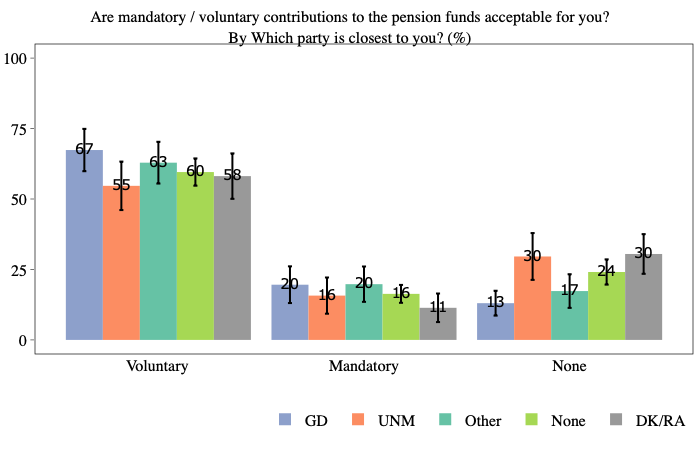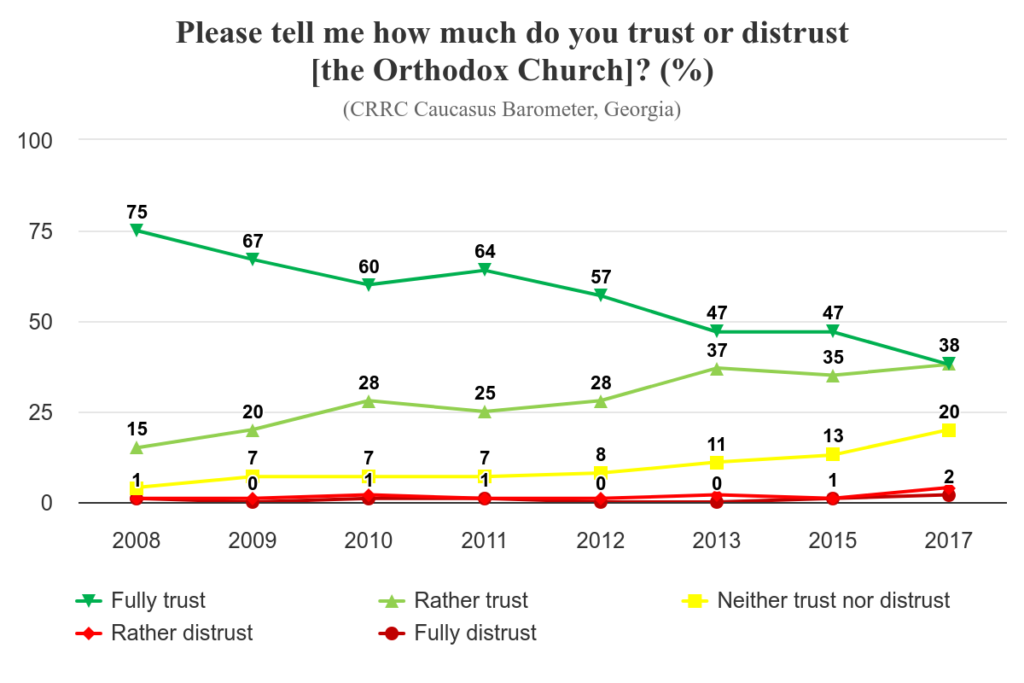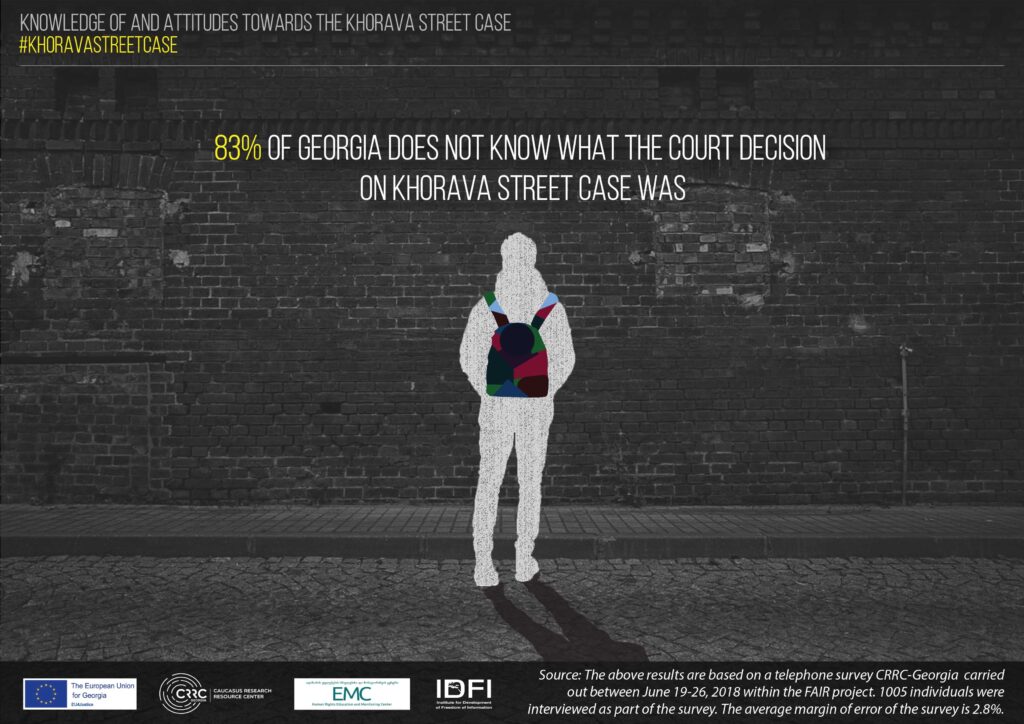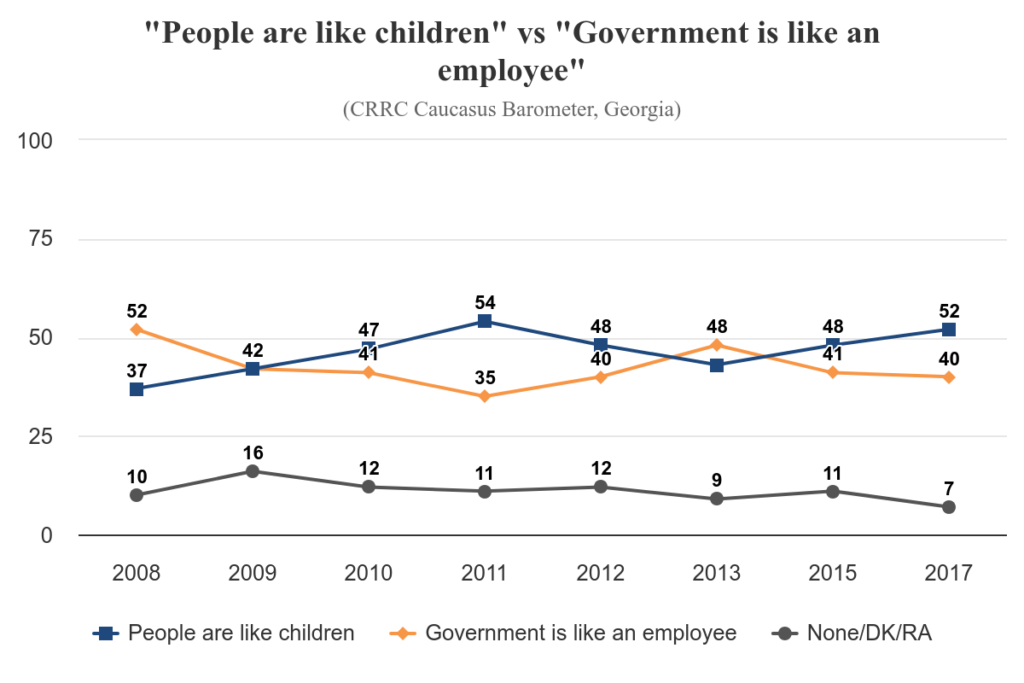
On July 21, 2018 Georgian legislators approved an accumulative pension scheme, after years of discussion. As one of the requirements of the new law, employees with contracts who are under the age of 40 have to contribute 2% of their remuneration…
Here you can find blogs written by researchers at CRRC Georgia that analyse trends in the region and are mainly based on the survey data conducted by CRRC Georgia. These articles first appear on OC Media’s Caucasus Data Blog as part of the collaboration between CRRC Georgia and OC Media.



